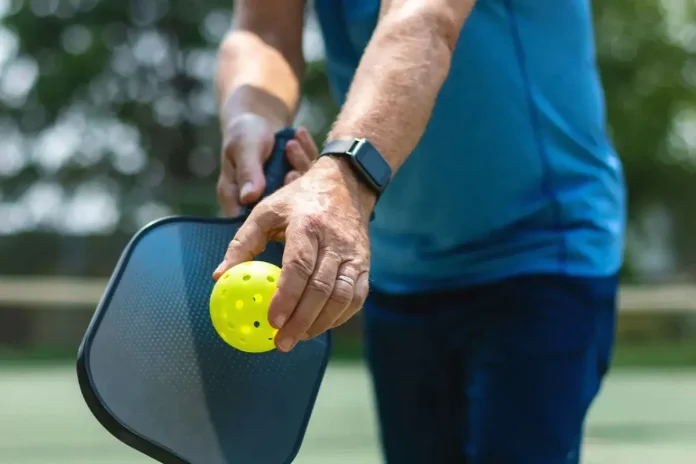Pickleball Mental Health Benefits: Pickleball, one of the fastest-growing sports in North America, is proving to be more than just a fun pastime. Research shows that regular play can lower stress, improve mood, and strengthen mental health. By combining exercise, social interaction, and mental focus, pickleball acts as a natural stress reliever for players of all levels.
Why Stress Matters
Stress is widespread in daily life, affecting people at work, home, and even during exercise routines. Nearly 75% of Americans report physical symptoms such as headaches, fatigue, or muscle tension. More than one in four say stress is so severe that they struggle to function. Long-term stress can also increase blood pressure, weaken immunity, and disrupt sleep.
How Pickleball Helps
Pickleball blends movement, competition, and social connection. These three elements work together to reduce stress both immediately and over time.
Key ways pickleball lowers stress include:
-
Physical activity: Exercise is proven to reduce stress in large studies, including one with more than 17,000 adults.
-
Brain health: Playing boosts brain chemicals like dopamine and serotonin, often called “feel-good” transmitters.
-
Mental focus: Matches require attention, pulling thoughts away from daily worries.
-
Resilience: Consistent play strengthens the body’s ability to handle stress, lowering blood pressure and calming the nervous system.
-
Social support: Playing with partners builds a sense of community that helps protect against emotional strain.
-
Physiological regulation: Activity supports the body’s stress response system, balancing hormones tied to anxiety.
What Makes Pickleball Unique
Many forms of exercise help reduce stress, but pickleball has features that make it stand out.
Social Connections
Group activity provides stronger emotional benefits than exercising alone. Pickleball thrives on doubles play, team formats, and casual post-game conversations. Laughing and competing alongside others signals safety to the nervous system.
Mental Engagement
Unlike repetitive workouts, pickleball requires strategy, quick thinking, and focus. This mental demand creates a “flow” state, quieting stressful thoughts and improving emotional control.
Play and Enjoyment
Because pickleball is fun and easy to learn, players are more likely to stay consistent. Regular play means lasting stress relief.
Physical Intensity
Pickleball keeps the heart rate elevated. Studies show players spend over 70% of game time at moderate to vigorous intensity. Singles matches can even match the effort of running or cycling. This intensity lowers cortisol, leaving players relaxed after play.
How Much Play Is Enough
Experts recommend at least 150 minutes of moderate activity or 75 minutes of vigorous activity per week. For pickleball players, this translates into two to four sessions each week, depending on intensity. Too little play won’t ease stress, while too much without recovery may increase risk of injury.
Beyond the Court
While pickleball itself reduces stress, some athletes use other tools to improve recovery and focus:
-
Mindfulness practices: Breathing and meditation calm nerves before or after games.
-
Heart rate variability training: Controlled breathing helps regulate the body’s stress response.
-
Cognitive strategies: Reframing stressful thoughts builds resilience and improves mindset during tough matches.
Building Balance
A balanced week might include doubles, singles, light practice, strength training, and full rest days. Combining physical play with recovery activities such as walking, yoga, or journaling ensures both performance and stress management.
Looking Ahead
Pickleball’s mix of fun, fitness, and friendship makes it one of the most effective tools for reducing stress. For many, stress relief does not require complicated programs or extra routines—it simply means showing up to the court. As participation grows, more players are discovering how the game strengthens both body and mind.
News in Brief: Pickleball Mental Health Benefits
Pickleball is more than a sport—it’s a proven stress reliever. Studies show playing reduces anxiety, boosts mood, and builds resilience through physical activity, social support, and mental focus. Experts recommend playing two to four times weekly for lasting benefits, making pickleball a natural tool for health and well-being.
ALSO READ: Serve for a Cause: Skaha Hills Pickleball Tournament Rallies Penticton for Mental Health in 2025

